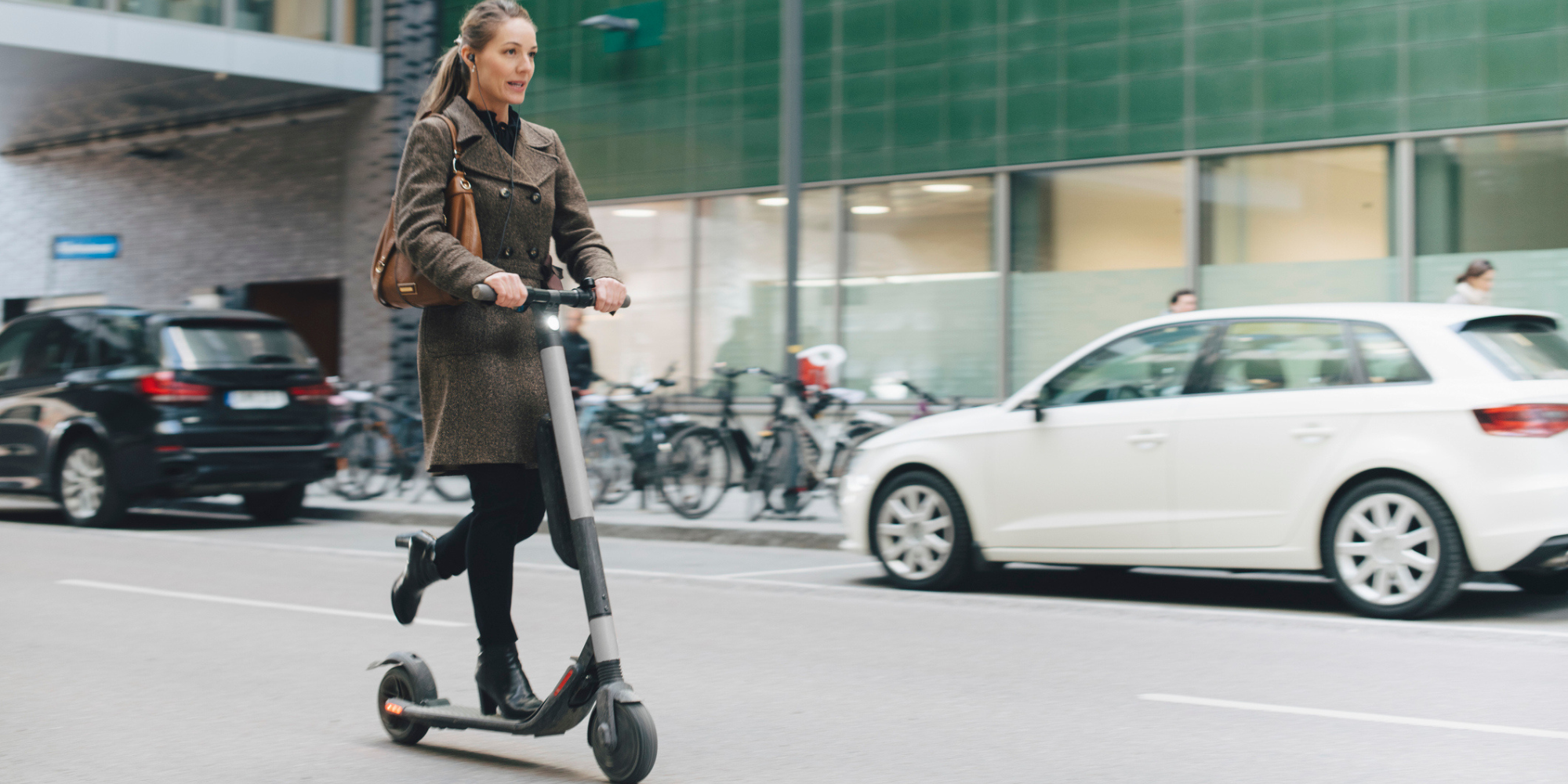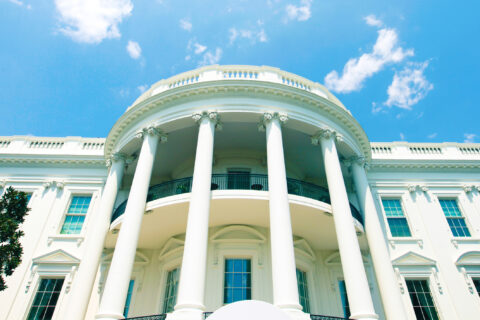Concerns around climate, safety, and space are driving cities to find innovative ways to reduce car travel.
Climate: Cars, trucks, and other fossil-fuel transportation modes are the primary source of greenhouse gas (GHG) emissions in the United States.[1]
Safety: According to the U.S. Department of Transportation (DOT), there is a “crisis on our roadways.”[2] Unlike the downward trend in most developed countries, car crash fatalities have been increasing in the U.S.[3] The larger the vehicle, the deadlier.[4]
Space: Cars occupy public space that could be used for parks, local business, and other social goods. Additionally, the cost to build car parking drives up housing prices, exacerbating the affordable housing and homelessness crises.[5]
Though most of our country is designed to be automobile dependent, 45% of trips in cities are under 3 miles.[6] This presents a prime opportunity for car alternatives. With shared micromobility, cities have a turnkey, climate-friendly transportation solution that reduces car trips and is set up and managed at comparatively little cost to the city. Nearly half of scooter trips would otherwise be taken in a car, and that number is higher in more car-dependent cities.[7] A shared Bird scooter is over 3x cleaner for the climate (comparing GHG emissions per passenger-mile) than an electric car, over 5x cleaner than an internal combustion engine car, and over 7x cleaner than a ride-share car.[8] It is also a tenth of the size.
Shared micromobility is a vital tool to help cities reach their climate and other goals, but a city’s transportation system must be designed to support these goals. For example, some cities have ambitious emission reduction goals, yet impose higher fines (as much as ~5x) for misparked scooters than misparked cars (research shows cars block the right-of-way 30x more[9]) or tax scooter trips up to 50x more than car trips.
To ensure shared micromobility systems run safely and neatly while maximizing their benefits, cities and operators could consider how to:
- Establish strong trust and partnership, enabling a collaborative approach to tackling issues.
- Weigh the potential benefit of regulation against the added cost, friction, and ridership reduction it would trigger. If a shared system is restricted and taxed such that it cannot be a viable and affordable everyday transportation mode that maximizes mode shift out of cars, a city will not realize the full benefits of the program.
Cities Leading the Way on Shared Scooters
Baltimore re-invests the revenues from permit fees and works collaboratively with operators to benefit their dockless vehicle program. For example, when vehicle vandalism became a problem, the City hosted a focus group with all operators to collectively ideate solutions. Administrators host quarterly micromobility committee meetings with operators and the public, so that everyone has full transparency into the program and is able to contribute.
Regular communication between Nashville and operators means that stakeholder concerns are addressed proactively. This prevents issues from building to a point that could spur restrictions that reduce access to the transportation mode. For example, to address concerns with scooter parking along the highly foot trafficked Broadway, Nashville is working with operators and other stakeholders on tailored solutions to mitigate issues but maintain reliable scooter access. As Nashville’s Transportation Licensing Director Billy Fields describes it:
“At the heart of Nashville’s program is partnership. With more than 1M residents in the metro area and tourism experts expecting to see 14.4M visitors in 2023, we have gone all in on transportation options to keep the Music City moving. In 2022, Nashville saw more than 1.2M e-scooter rides with an average rider rating of 5 stars. Why? Partnership!”
Oswego, New York and Bird worked closely to tailor the program to the City’s needs, implementing speed limits and geofencing, and offering discounted rides for residents with EBT cards. As Mayor William Barlow, a shared scooter champion, noted:
“We did a poverty study early in my administration and found that one of the biggest hurdles of getting people on unemployment jobs is transportation. Buses are unreliable, it’s stressful for the person if they can’t afford a car – they walk, and in February in Oswego if anybody’s ever been there, you’re not walking anywhere. So this [the scooter program] has been a great help to them.”
By working with operators to make shared micromobility a viable and competitive option, cities can make real progress toward their climate goals, reduce traffic, and expand transportation access for all.
[1] United States Environmental Protection Agency, “Sources of Greenhouse Gas Emissions” (2020 study).
[2] U.S. Department of Transportation, National Roadway Safety Strategy (January 2022).
[3] New York Times, The Exceptionally American Problem of Rising Roadway Deaths (November 27, 2022).
[4] SUVs and trucks have been found to be responsible for most serious injuries and deaths in the U.S. Insurance Institute for Highway Safety, as cited by U.S. DOT.
[5] Building parking for affordable housing in California can add up to $36,000 per unit (UC Berkeley, Terner Center for Housing Innovation, The Costs of Affordable Housing Production: Insights from California’s 9% Low-Income Housing Tax Credit, March 2020). A government analysis in Portland, Oregon, found that parking can increase the cost of a rental unit by over 60% (City Lab, Eric Jaffe, The High Cost of Residential Parking, March 2015).
[6] U.S. Department of Transportation Federal Highway Administration, Vehicle Trip Statistics.
[7] Kailai Wang, Xiaodong Qian, Dillon Taylor Fitch, Yongsung Lee, Jai Malik & Giovanni Circella (2022) What travel modes do shared e-scooters displace? A review of recent research findings, Transport Reviews, DOI: 10.1080/01441647.2021.2015639
[8] Bird’s independently conducted Life Cycle Analysis (2022), compared to International Transport Forum (ITF) Life Cycle Assessment model, 2020.
[9] Klein, N. J., Brown, A., & Thigpen, C. (2022, February 15). Clutter and compliance: Scooter parking interventions and perceptions. https://doi.org/10.31235/osf.io/su8wx
Learn More
Access these helpful resources for more information.
About the Author
Andrea Korb is the Director of Legislative Policy for Bird Rides, Inc.







